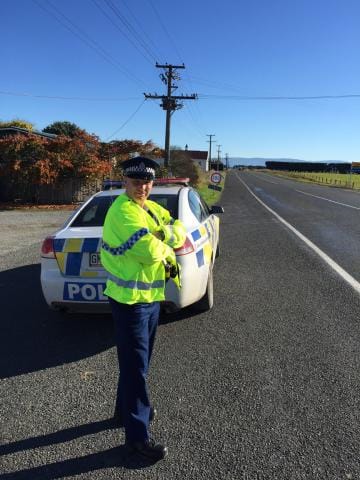We can’t control the weather but we can adjust our own driving to deal with it.
Southlanders shouldn’t be caught out by the weather – we know it gets wet, cold and windy on occasion, all year round, says Senior Constable Kelvin Templeton, Riverton Police Station.
There is ample signage on the roads, such as the Riverton Wallacetown Highway, to warn of any dangers such as surface or corner.
But it appears people are not registering the signs or just choosing to ignore them because there have been six crashes, including two fatals, on this stretch of road since January 2017.
Southlanders need to be aware that driving conditions can change regularly, often as a result of the weather.
So where you could safely travel at the speed limit one day doesn’t automatically make it safe the next.
We need to drive to the conditions and be aware of what is going on around us.
Complacency is our enemy when driving and often leads to mistakes, even for experienced drivers who know the roads well.
So to keep safe while driving this winter, here are some ideas from Riverton Police.
Vehicle Safety: Check your vehicle’s tyres, lights and brakes regularly.
Don’t assume that because it got a warrant six months ago that everything is right.
It’s your responsibility to keep the vehicle properly maintained, not your mechanic who only sees it once or twice in 12 months.
Drive actively: See what is going on around you and deal with it, don’t rely on caution signs to keep you safe, that’s your job as the driver.
Visibility: If it’s dark, overcast or raining, and you can’t see very well, please slow down.
Road Conditions: If the road surface looks glassy, smooth or slippery, it probably is, so please slow down.
Avoid Distractions: While driving a vehicle, there is nothing more important at that time than keeping it between the white lines, don’t be distracted by kids, dogs or your mobile phone.
Be Patient: There are all sorts of people using our roads all with varying degrees of driving ability, some people will drive to the conditions and not drive as fast as 100 km/h, and that’s fine, there is room on the road for them too, it’s not worth a crash just to get past them.
Lastly, the onus comes down to each and every individual driver playing their part on our roads – keeping not only themselves and their families safe, but keeping other motorists safe too.
Speed is a vital factor.
If you crash – regardless of the cause or who is at fault – speed is the single factor that most affects the outcome.
Just a few extra kilometres per hour can be the difference between avoiding a collision completely or a crash with a tragic outcome.
We want every journey for all road users to be a safe journey.

